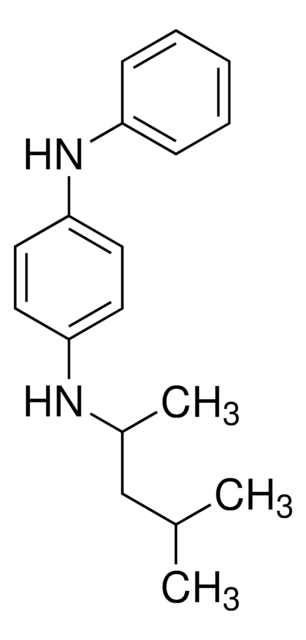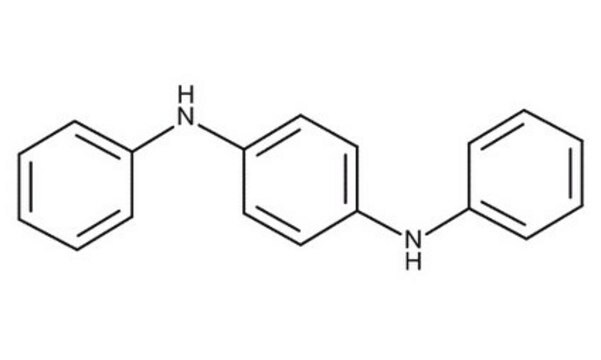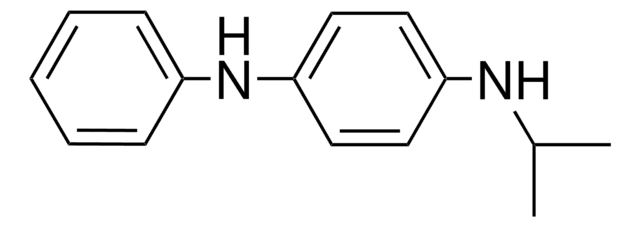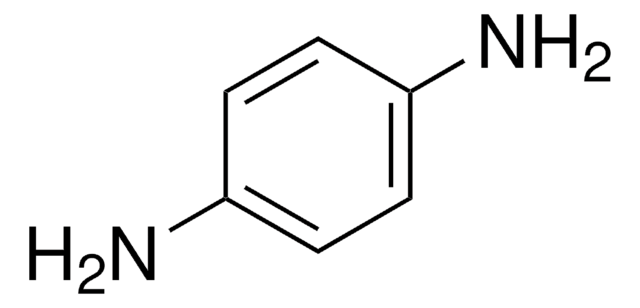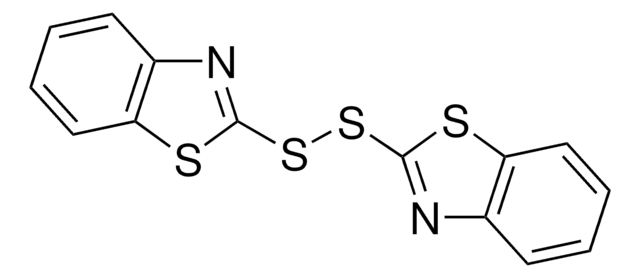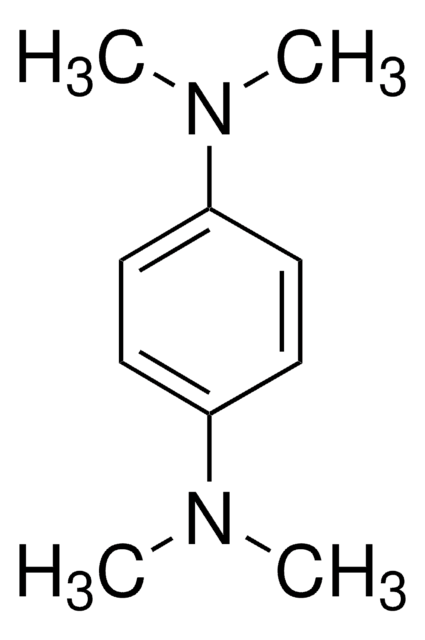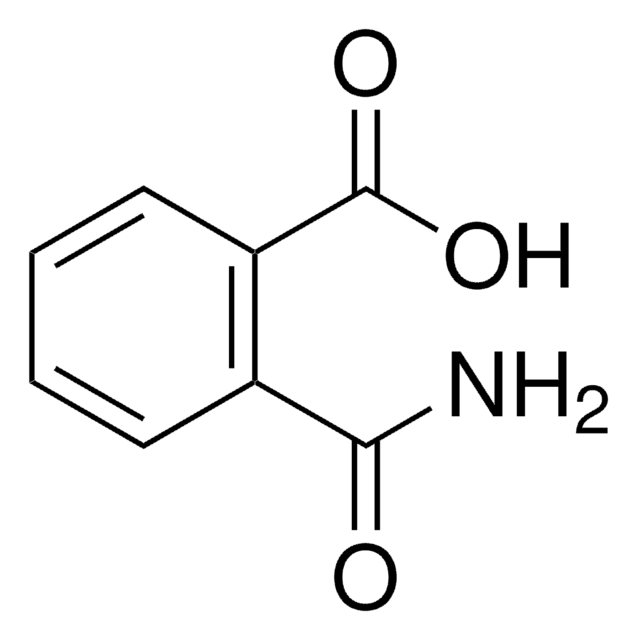292265
N,N′-Diphenyl-p-phenylenediamine
98%
Sinónimos:
N,N′-Diphenyl-1,4-phenylenediamine
About This Item
Productos recomendados
assay
98%
bp
220-225 °C/0.5 mmHg (lit.)
mp
143-145 °C (lit.)
SMILES string
N(c1ccccc1)c2ccc(Nc3ccccc3)cc2
InChI
1S/C18H16N2/c1-3-7-15(8-4-1)19-17-11-13-18(14-12-17)20-16-9-5-2-6-10-16/h1-14,19-20H
InChI key
UTGQNNCQYDRXCH-UHFFFAOYSA-N
¿Está buscando productos similares? Visita Guía de comparación de productos
Categorías relacionadas
Application
- TPA-induced inhibition of gap junctional intercellular communication is not mediated through free radicals.: This research explores the role of N,N′-Diphenyl-p-phenylenediamine (DPPD) in cellular communication, providing insights into its applications in high-performance rubber stabilizers and life science manufacturing chemicals. (Hasler et al., 1990).
signalword
Warning
hcodes
Hazard Classifications
Aquatic Chronic 3 - Skin Sens. 1
Storage Class
11 - Combustible Solids
wgk_germany
WGK 1
flash_point_f
Not applicable
flash_point_c
Not applicable
ppe
dust mask type N95 (US), Eyeshields, Faceshields, Gloves
Elija entre una de las versiones más recientes:
¿Ya tiene este producto?
Encuentre la documentación para los productos que ha comprado recientemente en la Biblioteca de documentos.
Los clientes también vieron
Nuestro equipo de científicos tiene experiencia en todas las áreas de investigación: Ciencias de la vida, Ciencia de los materiales, Síntesis química, Cromatografía, Analítica y muchas otras.
Póngase en contacto con el Servicio técnico